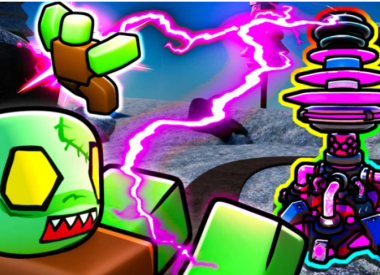In a move to stem the tide of cheap shovelware that clogs Steam and makes it harder for gamers to find real games they’d actually like to enjoy, Valve has pulled nearly 200 fake games developed by Silicon Echo Studios from its online store.
Silicon Echo Studios allegedly also sold games under a slew of names, including Anteater Games, Crimson Duck Studios, Netfork Studios, Sword Bubble Games, Zonitron Productions and more . In total, the shovelware devs have over a dozen pseudonyms used to distribute its game library, which include titles like Clickey: The Velocity Click, Pass The Time 2, and SHAPES through SHAPES8 .
The games themselves use pre-made Unity assets, intended to help fledgling devs create their own original work by serving as a base for real creativity and coding. Instead, the shovelware devs make games entirely out of pre-made assets only and offer minimal functionality, content, length, AI or style. This takes little effort or time on behalf of the “developer,” who can then push these titles out through Steam Direct. In this case, the “studios” pushed through multiple games under one Steam Direct application in order not to pay the recently-instituted $100 fee per title.
But why bother to make these games? For Steam trading cards, of course. Selling a slew of lazy games for super cheap means users can sell their trading cards and make money back, money which the developer gets a cut of as well. By making as many fake games as possible and sticking trading cards in all of them, scammy devs can make enough profit to be worth the trouble. Some devs even use bots to farm the cards for greater profits.
Trading cards on Steam’s gray market is a way for users to boost their user level, earn cash back with minimum effort and pay off cheap purchases of actual games, all with a cut to the dev. Both sides profit from this scummy interaction – the people who pay are those interested in finding and purchasing good games in a thriving indie community clogged with nonsense and garbage.
As for the players that downloaded these shovelware games, they can still access the removed titles in their library, but will be unable to collect trading cards, rendering the games’ entire reason for existence moot.
“We’re not interested in supporting trading card farming or bot networks at the expense of being able to provide value and service for players,” Valve said in a statement to Polygon this August.
After today’s full wipe of the entire Silicon Echo library, Valve sent Polygon the following statement:
“Yes, we have a full-time team monitoring reports and they identified an issue that lead to the removal of some titles from a few different Steamworks accounts. These accounts were generating a lot of reports and frustration from customers and other developers. It turns out that the bad actors were all the same person operating under different accounts.
What we found was a set of extreme actions by this person that was negatively impacting the functionality of the store and our tools. For example, this person was mass-shipping nearly-identical products on Steam that were impacting the store’s functionality and making it harder for players interested in finding fun games to play. This developer was also abusing Steam keys and misrepresenting themselves on the Steam store.
As a result, we have removed those games from the Steam Store and ended our business relationship with them.
The Steam platform is open, but we do ask developers to respect our customers and our policies. Spamming cloned games or manipulating our store tools isn’t something we will tolerate. Our priority is helping players find games they will enjoy playing.”
Here’s hoping Valve continues to take this issue seriously and finds ways to disincentivize the entire shovelware practice that gives indie games such an unfortunate reputation.
What do you think about Valve’s actions? Are there other accounts and games you wish they’d review? Feel free to let us know in the comments section below.


















